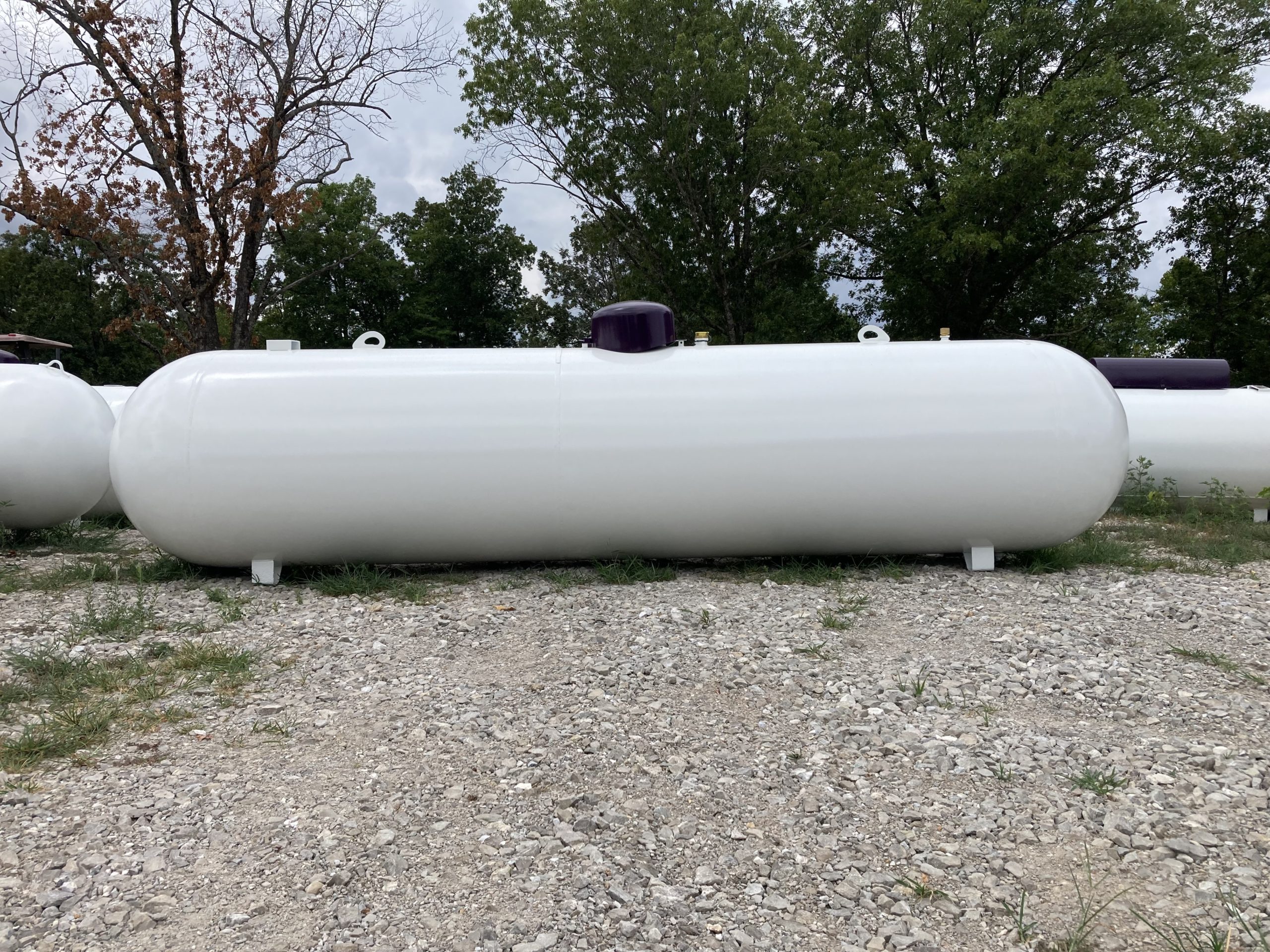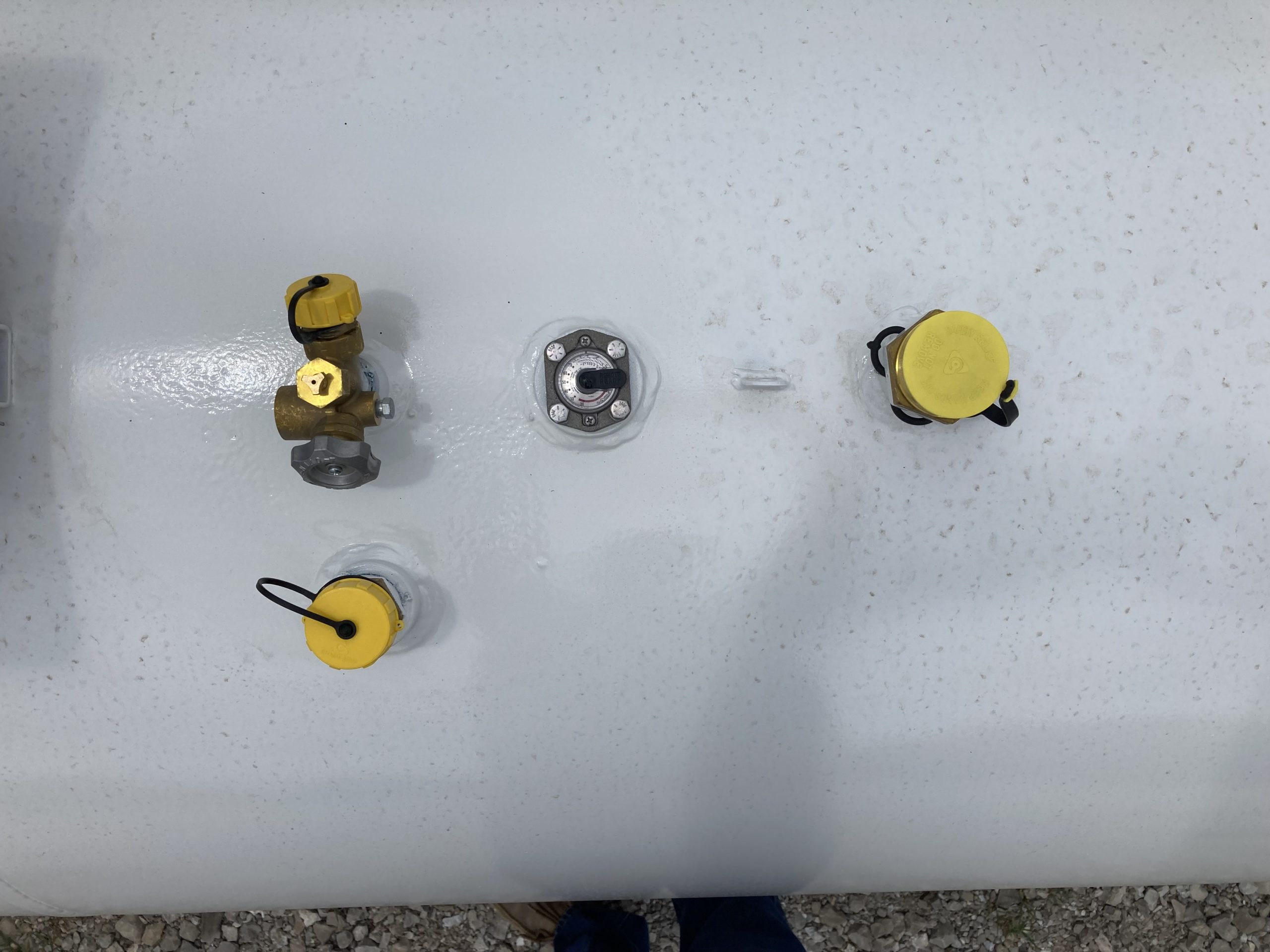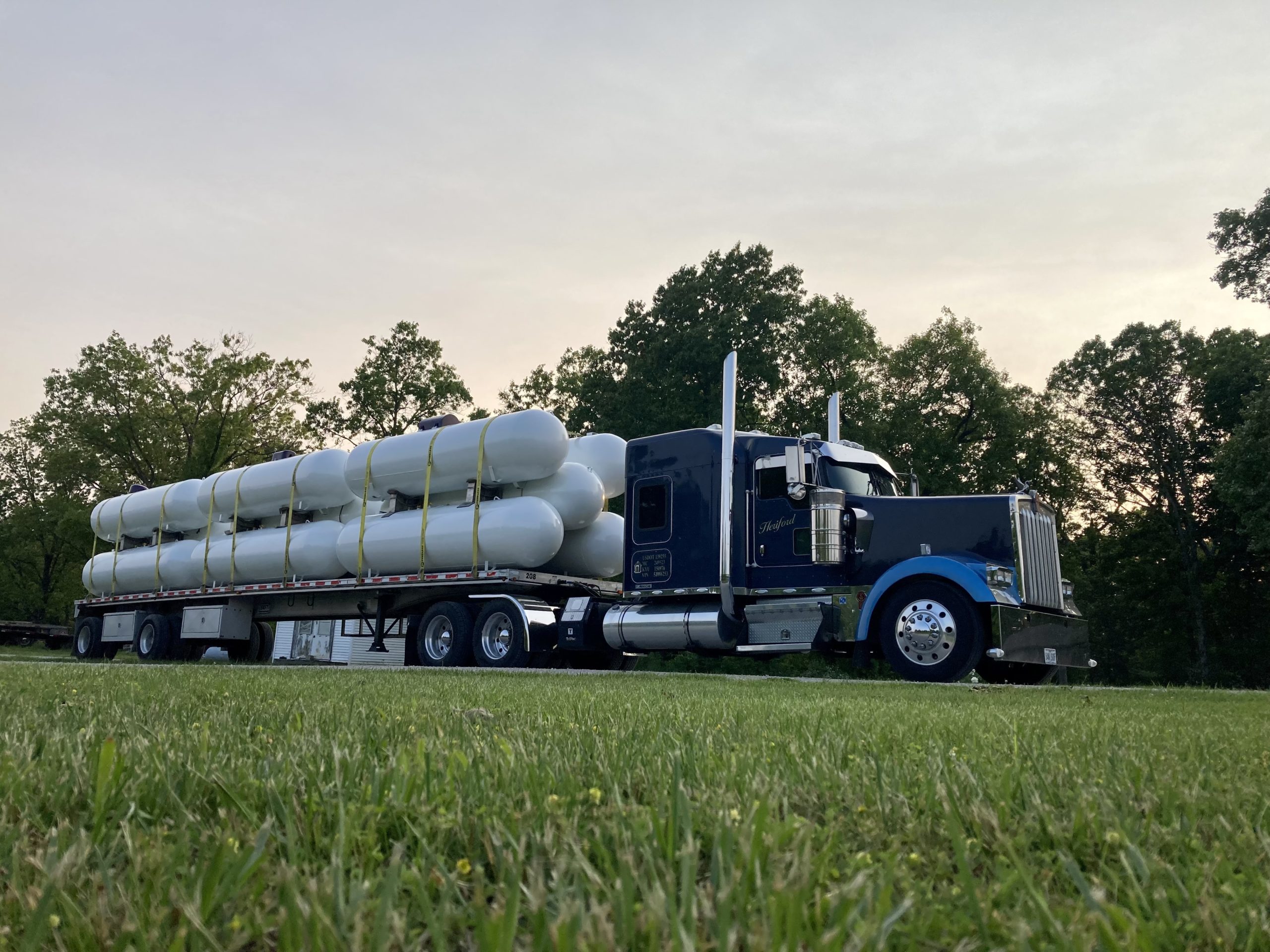Short supplies and high demand for steel, brass, copper, gauges and valves have made it harder for propane tank manufacturers to satisfy requests from propane companies.
To help alleviate the shortage of available tanks, the Arkansas Liquified Petroleum Gas Board issued a rule in 2021 that allows tanks that have lost their nameplate to be placed back into service for limited agricultural applications if they pass an inspection.
Tank nameplates are essential because they assure propane providers that the container was designed for and is suited for holding propane. Under normal circumstances, a propane tank that loses its nameplate must be taken out of service. This forces tanks that are otherwise good storage vessels out of circulation. Rather than scrapping good storage containers, the Arkansas rule provides a procedure for tanks to go through a board-approved inspection process that would certify the container is “Fit for Service.”
The rule has enabled MFA Oil to put 45 tanks that had been languishing on company lots back into use. Tom Procter, director of safety and maintenance, says the Fit for Service program provides excellent value for propane companies.
“We’re taking an asset that had no value other than scrap and making it a viable tank for agricultural use,” Procter says. “We have to sandblast, repaint and revalve the tanks to meet the program’s requirements, but we’re still saving $2,000 per tank compared to buying a new one.”
The process to determine a vessel’s suitability for propane service includes inspection and measurement of characteristics such as tank composition, wall and shell thickness, steel hardness, holding capacity, and overall condition. Once a tank passes inspection, it is affixed with a Fit for Service nameplate, and the tank can be placed back into service. Procter estimates most tanks that meet the program requirements have another 25 to 30 years of usability remaining in their lifespan.
Tanks approved for the Fit for Service program may be used for crop dryers, irrigation pumps and commercial livestock operations. Eligible tanks must hold between 500 and 1,000 gallons of capacity.
As an agricultural cooperative, MFA Oil is well positioned to find farmers and livestock producers who could use tanks that undergo Fit for Service certification.
“A huge portion of our business in Arkansas is ag-based, especially our large share of poultry barns,” Procter says. “Thanks to this rule change, it has not been difficult for us to take these tanks that have been sidelined and put them back to work.”




